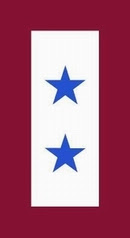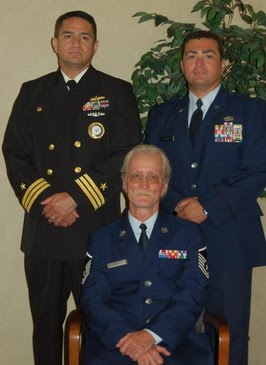Predictably, there's lots of gnashing and thrashing on the Left (and the Right, too) on the subject. Kevin Drum writes a piece that is representative of the Left's point of view, here. A couple of grafs:Defense lawyers in some of the country's biggest terrorism cases say they plan to bring legal challenges to determine whether the National Security Agency used illegal wiretaps against several dozen Muslim men tied to Al Qaeda.
The lawyers said in interviews that they wanted to learn whether the men were monitored by the agency and, if so, whether the government withheld critical information or misled judges and defense lawyers about how and why the men were singled out.
The bottom line is the government and prosecutors are required under a Supreme Court ruling known as Brady v. Maryland to provide defendants with all "material" information affecting their case, including derogatory information that could impact the credibility of prosecution witnesses. This includes information that might impact their guilt or their sentence.In a previous post I pointed both of my faithful readers to an article by former Federal Prosecutor Andrew C. McCarthy that discusses the points Mr. Drum makes. Let's review:
Another Supreme Court case, Kyles v. Whitley, 514 U.S. 419 (1995) held that the duty of disclosure is not limited to evidence in the actual possession of the prosecutor. Rather, it extends to evidence in the possession of the entire prosecution team, which includes investigative and other government agencies.
Under discovery rules that apply to American criminal proceedings, the government is required to provide to accused persons any information in its possession that can be deemed "material to the preparation of the defense" or that is even arguably exculpatory. The more broadly indictments are drawn (and terrorism indictments tend to be among the broadest), the greater the trove of revelation. In addition, the government must disclose all prior statements made by witnesses it calls (and, often, witnesses it does not call).I'm no lawyer; I have, aside from my divorces, zero experience with the American legal system. Still, as a relatively well-informed and interested citizen, I don't see much, if any, good coming out of the impending legal challenges mounted by lawyers defending accused terrorists. There are some bad actors in the legal biz, two come immediately to mind: Lynne Stewart and Ramsey Clark. Both of these individuals are classic examples of intelligent but misguided (at best) practicing attorneys working against the "greater good" of American society.
This is a staggering quantum of information, certain to illuminate not only what the government knows about terrorist organizations but the intelligence agencies’ methods and sources for obtaining that information. When, moreover, there is any dispute about whether a sensitive piece of information needs to be disclosed, the decision ends up being made by a judge on the basis of what a fair trial dictates, rather than by the executive branch on the basis of what public safety demands.
It is true that this mountain of intelligence is routinely surrendered along with appropriate judicial warnings: defendants may use it only in preparing for trial, and may not disseminate it for other purposes. Unfortunately, people who commit mass murder tend not to be terribly concerned about violating court orders (or, for that matter, about being hauled into court at all).
In 1995, just before trying the blind sheik (Omar Abdel Rahman) and eleven others, I duly complied with discovery law by writing a letter to the defense counsel listing 200 names of people who might be alleged as unindicted co-conspirators—i.e., people who were on the government’s radar screen but whom there was insufficient evidence to charge. Six years later, my letter turned up as evidence in the trial of those who bombed our embassies in Africa. It seems that, within days of my having sent it, the letter had found its way to Sudan and was in the hands of bin Laden (who was on the list), having been fetched for him by an al-Qaeda operative who had gotten it from one of his associates.
As I see it, the best we can hope for is the legal challenges to work their way up to the Supreme Court as quickly as possible. And then pray the Court concurs with the President's Constitutional right (and duty) as the nation's wartime Commander-in-Chief to order the types of surveillance at issue here. We are at war, folks, make no doubt about it. It's a pity that a significant portion of the population, and the power structure, in this country fails to recognize that fact.




.jpg)




No comments:
Post a Comment
Just be polite... that's all I ask.